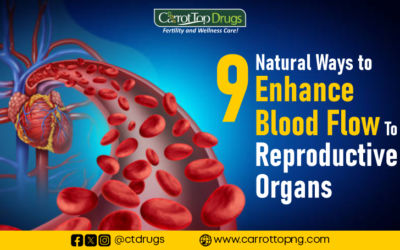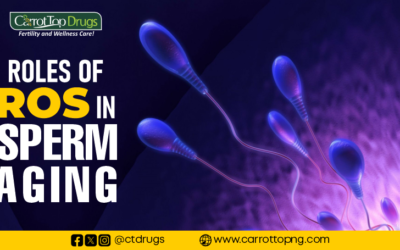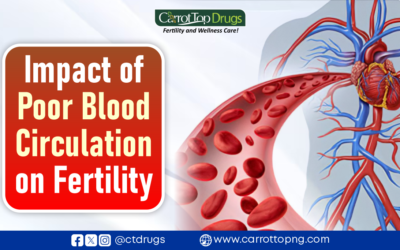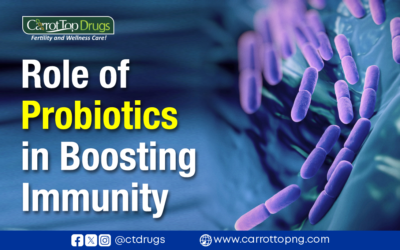Introduction
Male infertility is a problem that affects sperm quality. The percentage of males with infertile sperm is increasing and it is becoming a major concern for couples who want to have children.
There are many factors that can affect the quality of sperm, such as age, environmental toxins, smoking and alcohol use, certain medications, and certain medical conditions.
Some of these can be controlled while others cannot. It is important to know the risks and take necessary precautions to keep sperm healthy.
In this article, we would be examining the common risk factors you need to look out for in order to keep your sperm active and boost your fertility as a man.
1. Impact of Age On Sperm Quality
The age of a man is one of the most important factors when it comes to fertility—the quality and quantity of his sperm decrease with age. However, sperm production doesn’t stop completely with age and can continue for decades, unlike women.
Aging affects the quality and quantity of sperm in men. It also affects their fertility levels. This is because aging makes it more difficult for the body to produce sufficient amounts of testosterone, which is needed for sperm production.
2. Poor Diet’s Effect on Sperm Quality
A poor diet has a huge effect on fertility in males. Junk food is one of the most common causes of male infertility.
Many people are turning to vegan diets and other eating habits that are considered healthy. However, they might not be aware of the potentially negative effects on their sperm quality.
A study found that chocolate consumption was associated with poorer sperm quality and motility. The researchers suggested this might be because chocolate contains high levels of caffeine and sugar, which can affect the male reproductive system.
Infertility may be associated with low levels of vitamin C and zinc, a mineral necessary for proper prostate function. Insufficient amounts of these nutrients can cause sperm to bind together, thus reducing their effectiveness.
3. Smoking Can Affect Sperm Quality
Smoking is a bad habit that has negative effects on the human body. It can cause various health problems such as lung cancer, heart disease, and stroke. Smoking also affects male fertility and impairs sperm quality.
Smoking can lead to a decrease in sperm count and motility, which can cause problems when trying to conceive. Tobacco smoke can negatively affect sperm production and lead to infertility in both men and women.
Smoking can be a major contributor to infertility.
4. Exposure to Pollution and Environmental Factors
Pollution in recent times has become a global problem that is affecting people all over the world. It has been linked to health problems, such as male infertility.
Pollution causes male infertility in two ways; by increasing the temperature of the testicles and by decreasing sperm count.
It often increases the temperature of the testicles, which can cause them to produce less sperm. Pollution also decreases sperm production by decreasing testosterone levels.
Pollution is more than just smog and toxic particles in the air. It can also lower testosterone levels, thus reducing sperm production in men.
The environment is one of the most important factors that can affect male reproductive health. One of the environmental factors that affect male reproductive health is air pollution. Air pollution can cause a variety of problems, such as heart disease, lung cancer, and other respiratory problems.
Another environmental factor that affects male reproductive health is water pollution. Water pollution can lead to diseases such as cholera, typhoid fever, and hepatitis A.
Lastly, the environment also affects male reproductive health through toxic chemicals in food. For example, pesticides in produce may have harmful effects on fertility if consumed over long periods of time or in large quantities.
5. Excessive Stress Can Lower Sperm Quality
Men who have high levels of stress may have a lower sperm count and poorer motility, which can make it harder to conceive.
Some studies have found that men with chronic stress have lower sperm counts than those who don’t experience as much anxiety. In one study, men who received psychotherapy for depression had normal levels of sperm after six months.
While the average sperm count in men has been dropping for the past 50 years, a new study indicates that psychotherapy can have a positive effect on sperm levels. This is great news for couples who are having trouble conceiving or struggling with infertility issues.
With the rise in technology, we are constantly connected to the world and there is no break from work. We have all seen how stress can take a toll on our mental and physical health, but what does it do to our bodies? Stress levels are often measured by cortisol levels in the blood which is a hormone that is released when we feel stressed.
Cortisol levels are due to high stress. Stress can have a significant impact on your body and if you aren’t careful, it could lead to serious health problems like obesity, diabetes, heart disease, cancer, or even depression.
The main cause of stress is anxiety which affects your nervous system and can make you more susceptible to diseases. It also has an impact on your endocrine system as it affects the production of hormones like testosterone and estrogen.
6. Certain Medications
Some medications can affect sperm production and quality. It is possible that the medication you are taking may be to blame for your infertility.
Male fertility can be impacted by a variety of factors, some of which are not always as apparent. These factors include some drugs taken by the patient. Studies have shown that men taking certain medications could lead to decreased semen quality, sperm motility, and sperm count. The effects on male fertility can also vary depending on the type of medication and how long it has been taken.
Certain medications like long-term anabolic steroid use, cancer medications (chemotherapy), testosterone replacement therapy, some ulcer medications, some antifungal and antibiotic medications and some other medications can impair sperm production which would in turn lower fertility rates in men.
Opiates are also a type of drug that can affect sperm health. They are used to treat pain but are often abused because they produce a feeling of euphoria and relaxation.
The use of opiates can lead to infertility in men. Opiates decrease the production of testosterone and sperm, which causes infertility in men.
If you have been taking any of these types of medication for a long period of time, it is important to speak with your doctor about any negative side effects that you may have noticed on your sexual health. The doctor will be able to help you find other alternatives that are less likely to cause these side effects and improve your fertility as well as sexual health.
7. Depression and Anxiety
Depression and anxiety are mental disorders that can affect sperm quality. They can cause male infertility, which is a condition in which a man’s sperm cannot fertilize the egg.
In some cases, depression and anxiety can be treated with medication, therapy, or lifestyle changes. However, depression and anxiety may also lead to other health problems like heart disease, diabetes, or obesity.
People who are depressed and anxious face the risk of developing other health problems such as heart disease, diabetes, or obesity.
8. Exposure to Radiation Can Affect Sperm Quality
Exposure to radiation can cause infertility in males. The radiation can damage the sperm cells and make them incapable of fertilizing the egg. It can also cause genetic mutations in sperm cells, which will result in birth defects.
Exposure to radiation can cause infertility. This is not only harmful to men, but it also affects female fertility. Radiation exposure can be caused by many factors, such as living near power lines or hazardous waste sites or being exposed to a nuclear power plant accident.
9. Tight Underwear
The use of tight underwear is hazardous to sperm health. The reason for this is that it heats up the scrotal sac /scrotum and could affect the production of sperm cells as well as their motility.
10. Alcohol
Many men are unaware of the negative effect of alcohol on sperm production. Alcohol reduces male fertility by damaging the DNA of sperm cells, which can lead to birth defects.
Alcohol is a lot more than simply a social drink. It can have seriously detrimental effects on the body, which is why it’s so important to know the truth behind it.
Alcohol has a lot of positive attributes, but it can also have serious negative effects on the body. This is why it’s so important to know the truth behind it. Studies have shown that alcohol doesn’t just cause addiction, but also increases the risk of developing certain cancers.
11. Excessive Weight
Men who are overweight or obese are more likely to have lower sperm counts, less motile sperm, and poor-quality sperm.
The higher the BMI, the lower the percentage of high-quality sperm.
Men who are overweight or obese have a greater risk of having low testosterone levels, which can affect fertility.
12. Excessive Excercise
Excessive exercise can lead to low testosterone levels and decreased sperm quality. This is because excessive exercise can lead to a decrease in the production of testosterone and an increase in the production of cortisol, which is a stress hormone that can affect your sex hormones. It also leads to increased oxidative stress, which can negatively impact sperm quality.
13. Marijuana
It is important to note that marijuana does not affect the production of sperm and testosterone in all men. There are some men who are able to use marijuana without any negative effects on their fertility or sperm production.
In general, however, it is important for men who use marijuana to be aware of the negative effects it can have on their fertility.
14. Varicocele
A varicocele is a type of swelling that develops on the spermatic cord. It’s usually found on the left side of the scrotum but can be present on either side. The condition is usually painless and harmless, but it can cause infertility in men who are trying to conceive.
Varicoceles are quite common in males, with an estimated 15% to 20% of all males having them. The condition is more common among men who have had testicular injuries or who have a family history of varicoceles. Men who have varicoceles may experience no symptoms at all or they may experience pain or heaviness in one testicle and one scrotum.
15. Sexually Transmitted Diseases (STDs)
Men are not immune to sexually transmitted diseases, and in a recent study, researchers found that some STDs can affect men’s fertility.
According to the research conducted by Ana Carolina Xavier Goulart, Hana Carolina Moreira Farnezi, Juliana Peralva Baumgratz Medeiros Franca, etc., 50% of infertility cases are male-related. It also signifies that STDs may cause about 15% of male infertility cases. It affects literarily all the parameters. Such as motility, concentration, morphology, and even sperm number.
Some of the diseases the research was based on include HIV, HPV, and Chlamydia.
Conclusion
In conclusion, there are many causes of male infertility. However, it’s not always clear which factor is causing the problem. There are also many things that you can do to improve your fertility before seeking medical treatment. It is necessary therefore for you to examine your lifestyle and diet and make the necessary changes. Our MALE FERTILITY PRODUCTS like Evergreen Formular for Men and Evergreen Action for Men can also contain essential vitamins and minerals that have been shown to greatly improve important sperm parameters such as sperm count, sperm quality, and motility.
In the next article, we would examine how to boost the health of your sperm cells.

















